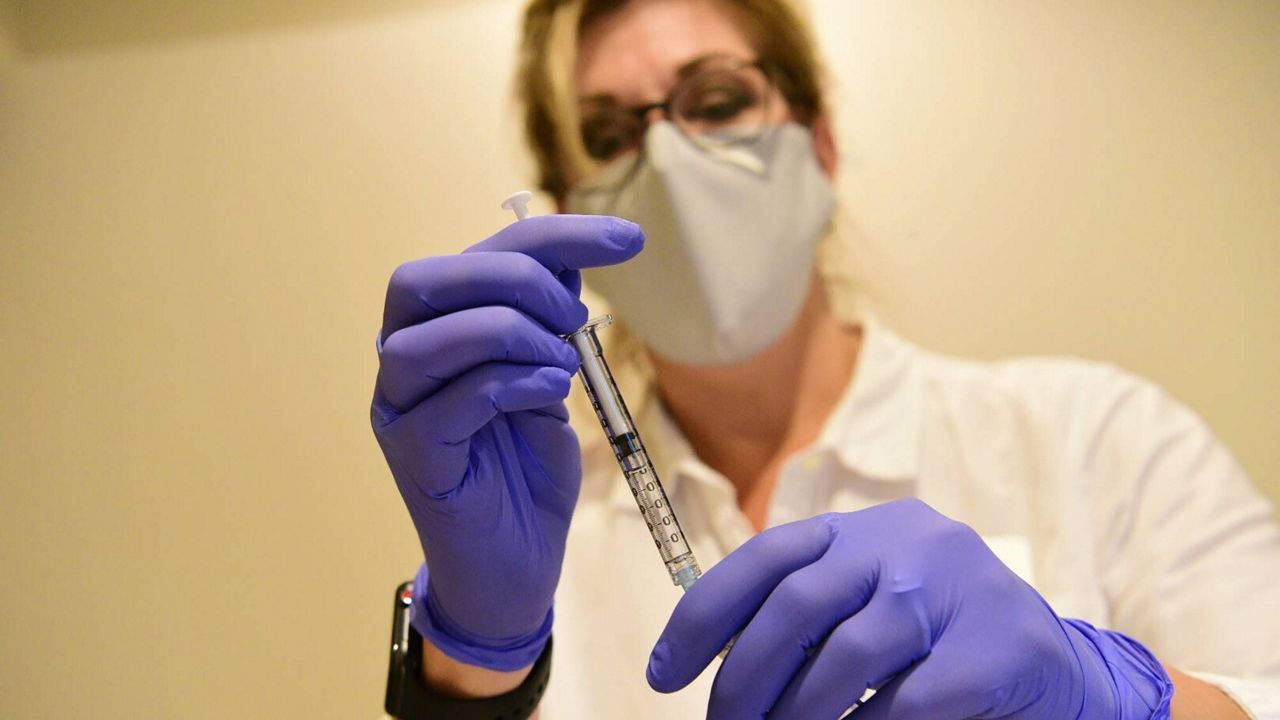Drugmaker Merck & Co. will help produce rival Johnson & Johnson’s newly approved coronavirus vaccine in an effort to expand supply more quickly, the White House confirmed Tuesday.
What You Need To Know
- Drugmaker Merck & Co. will help produce rival Johnson & Johnson’s newly approved coronavirus vaccine in an effort to expand supply
- White House Press Secretary Jen Psaki said President Biden has invoked the Defense Production Act to help two Merck facilities get ready to start manufacturing the shots
- The announcement comes as the White House looks to speed the production of the single-dose vaccine
- Officials have said J&J faced unexpected production issues with its vaccine and produced only 3.9 million doses ahead of its emergency authorization
The announcement comes as the administration looks to speed the production of the single-dose vaccine. Officials have said J&J faced unexpected production issues with its vaccine and produced only 3.9 million doses ahead of its receiving emergency use authorization on Saturday. The company says it is on pace to deliver 20 million doses by the end of March and 100 million doses by the end of June.
"We learned that they were behind on their manufacturing capacity, and so we took steps to ensure we could capitalize on the scientific breakthrough," Press Secretary Jen Psaki said in the briefing room Tuesday.
To facilitate the partnership, Psaki said the president has invoked the Defense Production Act to help two Merck facilities get ready to start manufacturing the shots, and she said the Department of Defense will help oversee the logistics.
Facing questions about the company's slipping delivery schedule, J&J Vice President Richard Nettles told lawmakers on Capitol Hill last week that the company had faced “significant challenges” because of its “highly complex” manufacturing process.
The assistance from Merck is expected to help J&J meet its production commitments and expand supply even further, but the administration did not immediately provide specific numbers.
President Joe Biden highlighted the development in a speech Tuesday afternoon, with an updated tally that now they are expecting to have enough vaccinations for all American adults by the end of May.
In a statement, the Department of Health laid out how the federal government will assist Merck and Johnson & Johnson in their efforts, including the Biomedical Advanced Research and Development Authority (BARDA) providing an initial investment of $105 million for Merck "to convert, upgrade and equip Merck facilities to the standards necessary to safely manufacture the vaccine," as well as the Department of Defense providing daily logistical support.
"With the urging and assistance of the Administration, J&J also will begin operating its manufacturing facilities 24/7 to maximize production output," HHS added.
"These efforts will contribute to J&J’s ability to accelerate delivery of their vaccine doses from 100 million doses by the end of June to at or near 100 million doses by the end of May," the statement continued. "In the long term, these actions will ultimately double J&J’s U.S. capacity to produce drug substance and increase the U.S. capacity for fill-finish."
The news was first reported by The Washington Post.
While the administration has already guaranteed enough doses to vaccinate the U.S. population, the press secretary said Tuesday it’s important to continue prioritizing production in case one vaccine ends up being more effective in certain populations, such as children, and in case COVID-19 variants become a bigger issue down the line.
It was not immediately clear when the effect of Merck's assistance would be reflected in supply. Previously, federal officials have cautioned that setting up the highly specialized manufacturing lines to produce vaccines would take months.
Merck halted its own plans to develop a coronavirus vaccine earlier this year, finding that their candidates were generating an inferior immune system response compared with other vaccines. It said it would instead focus its work on developing treatments for COVID-19.
Compared to the two-dose versions produced by Moderna and Pfizer, the J&J vaccine is less resource intensive to distribute and administer, making it a critical piece to U.S. plans to spread vaccinations around the world — but only once Americans are inoculated. The J&J vaccine can be stored for months at refrigerated temperatures, rather than frozen, and doesn't require patients to return for a second dose three or four weeks later.
The Associated Press contributed to this report.



